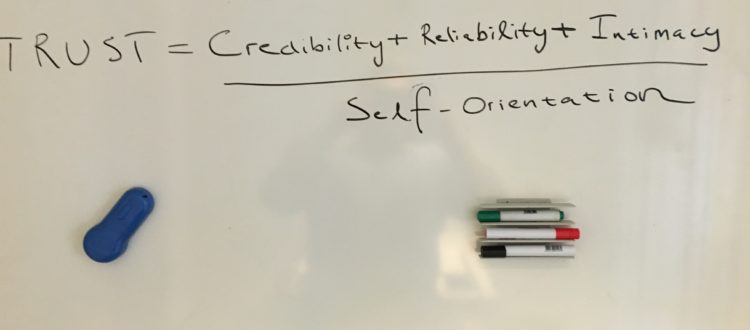I never lose. I win or learn.
Long term winner?
One of the most misused sales buzz word is ”win-win” usually to describe a smart move to gain an agreement. However, smartness and trust is not always a good combination. In the view of the buyer and the daily life with a complex and “poisoned contract” the perception of the client might be very different. “Out smarting” your client will erode trust for a long time (for good?). Short term priorities (i.e. quarter driven sales management) is a risk factor when it take precedence over long term business relationships. The consequence is that an initial winner will be a long time looser.
What can be done better in negotiations?
Easily sad but hard to manage in the heat of a though negotiation is to create a list of consequences sorted by short and long term objectives. The list that can help getting a balance between short and long term goals. Not to forget make the client objective lists first. If appropriate, share your understanding with client to get confirmation of priorities and momentum into a potentially stalled negotiation.
Trust is gained by checking out your ego at the door walking in to a negotiation.
TRUST = ( Credibility + Reliability + Intimacy) / Self-Orientation
Credibility is gained from your ability to demonstrate you do understand your clients issues and challenges. Reliability a judgment whether you are able to keep your promises or not. Intimacy : will your client discuss tough issues with you or not? All these are building on your ability to gain trust. However self-orientation will not help you build trust. Your focus should be on your counterpart and not your- self, hence kept at lowest possible level.
A useful tactic to downplay self-orientation is using open ended questions. The questions will help you understand your counter parts core issues and thus gain better understanding in how to position your tradable and none-tradables during the negotiation. Do not be afraid for confirm your understanding/paraphrase course of the negotiation, it will help you understand core and underlying issues.
In the end if you fail (we all do from time to time)? Take the opportunity to invest it as a learning. Loss reviews should not be an exercise to find the guilty rather try to understand what went wrong in dialogues with client, building value propositions and differentiating versus competition. To avoid getting bias from internal politics into the analysis it can be wise to engage an external partner to perform the review





